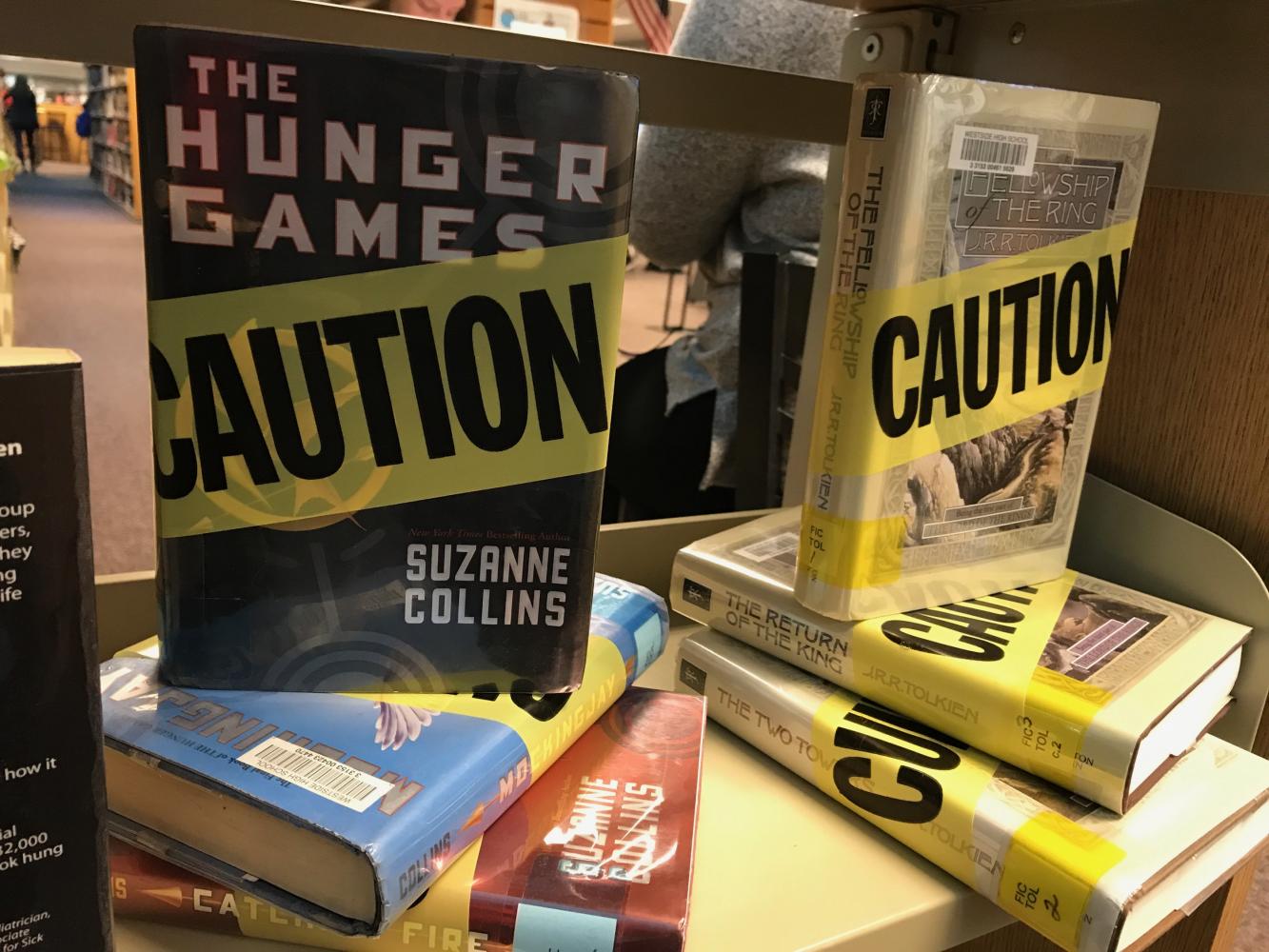Your donation will support the student journalists of Omaha Westside High School. Your contribution will allow us to purchase equipment and cover our annual website hosting costs.
Banned Book Week in the Library Raises Awareness for the Power of Words
October 3, 2017
If you walked through the library last week, you might have seen a setup of caution tape over a large display of books. Last week, Sept. 24- Sept. 30 was Banned Book Week, a week that the library celebrates every year to raise awareness about the books that have been banned in parts of America throughout history, from everything from classic novels to the Hunger Games.
“It stands out to me that they were challenged, but yet they’re classics and they’re still going strong,” said librarian Theresa Gosnell.
Gosnell said that some of the books are banned because of their titles, whether they are sexually explicit, censored for language, or something they don’t agree with such as religion or LGBT. When the book is challenged it goes through a process and a committee has to decide whether the book will be removed.
This can even happen at our own school. Sometimes parents will not approve of a book assigned to their student, but Gosnell says it’s rare that they will challenge the book to get it removed from the school library. She believes that people should let others have the opportunities to read.
“I think there are always going to be people who question the freedom of speech, and I just think it’s always going to be an issue in the United States,” Gosnell said.
Gosnell believes that banned books have shaped our country. To Gosnell, it is important that students realize that the challenging of books takes place because students should recognize that everybody’s opinions are different, which makes words have much more power.
“There are a lot of things to learn from the books because they are honest. I think of language for example in some of the books, but that’s just the way that people talked at certain times or in certain areas where the books take place. It’s really honest and it gets to the heart of what it was like then,” said Gosnell.

